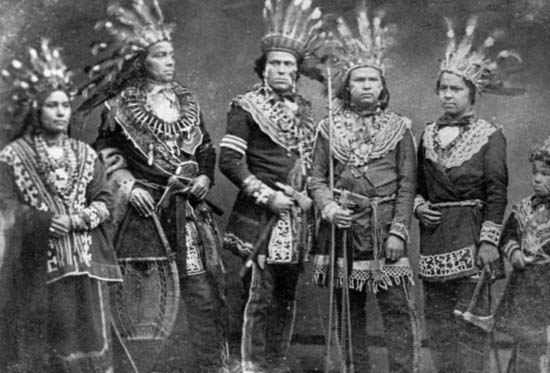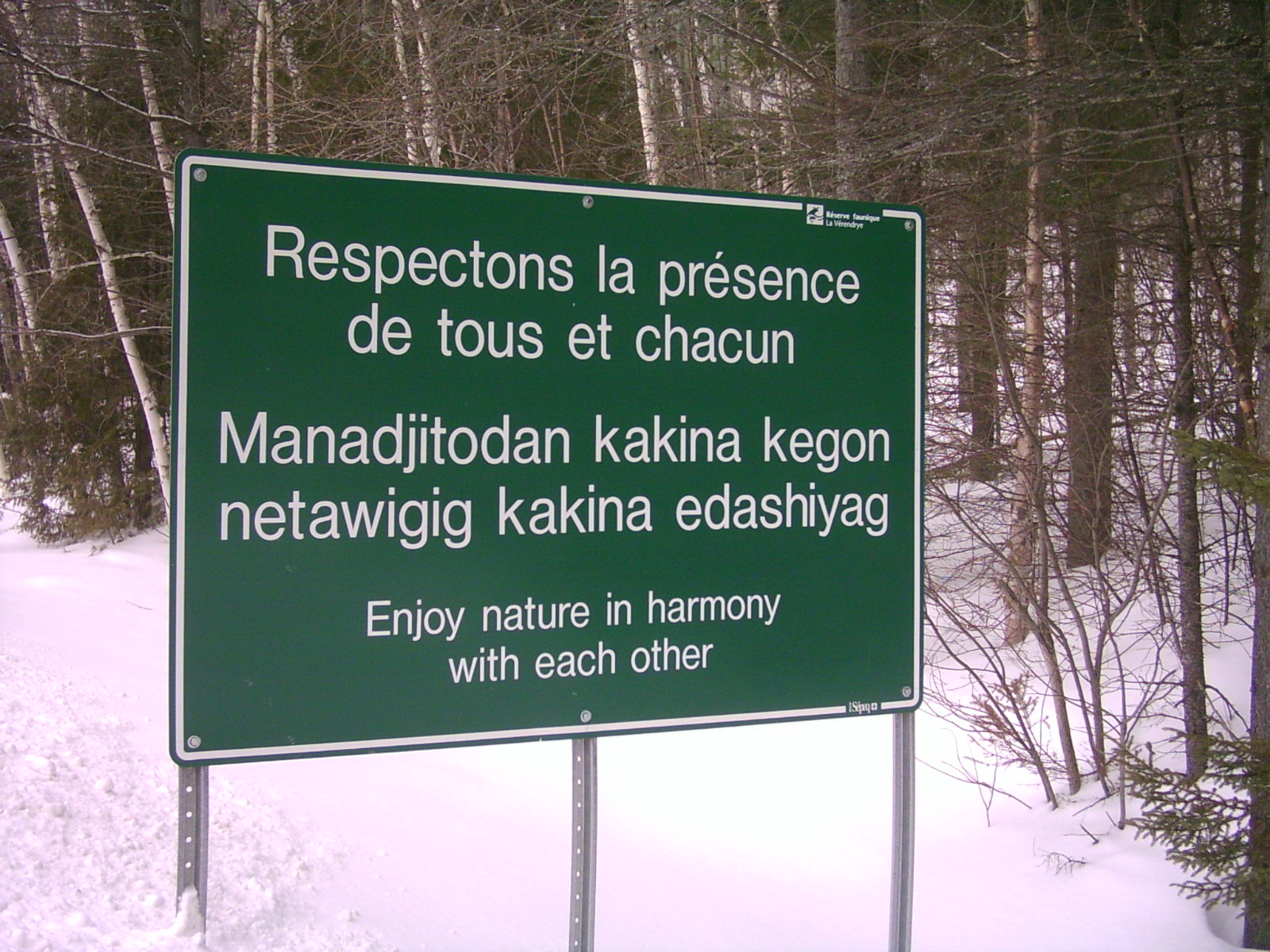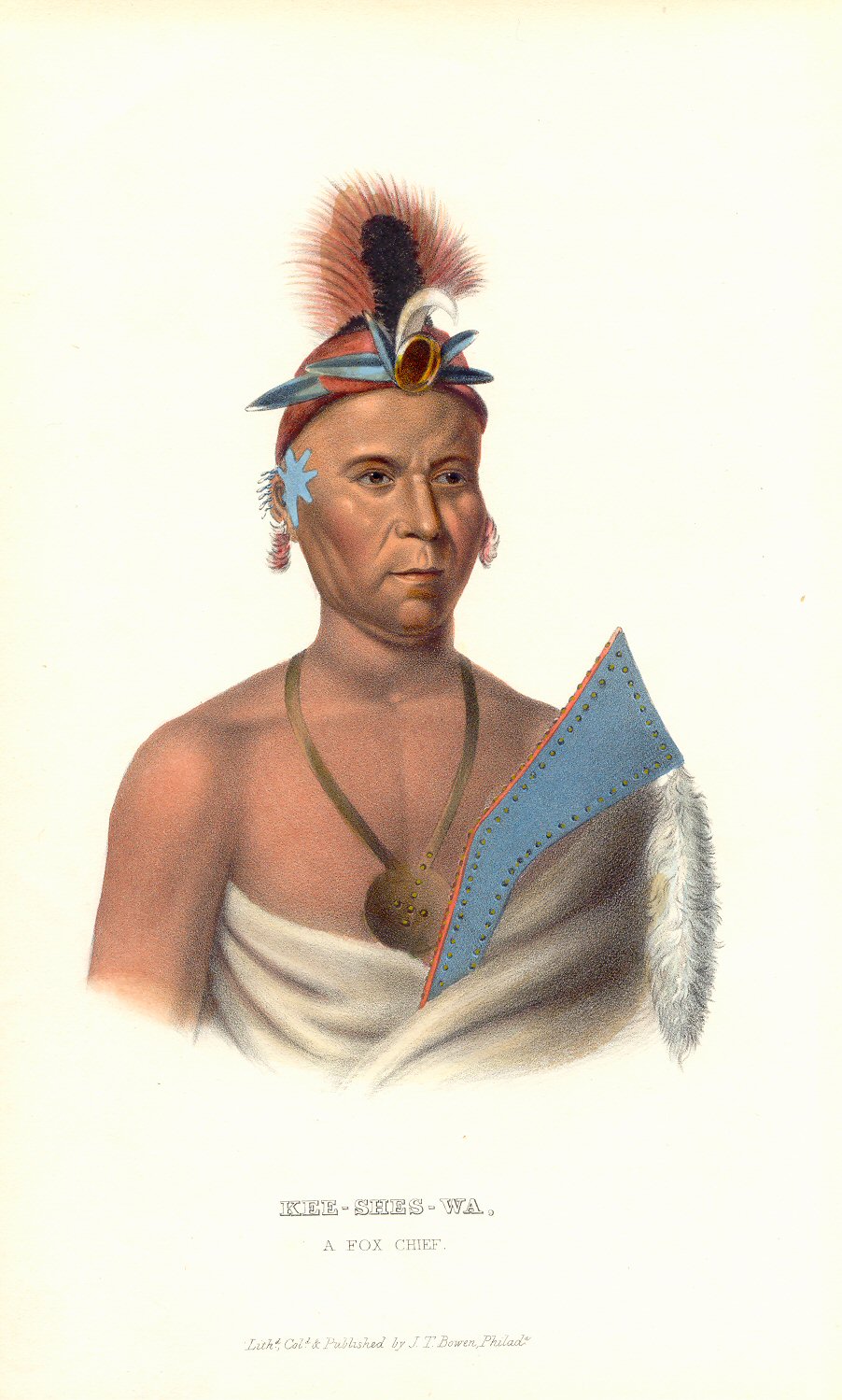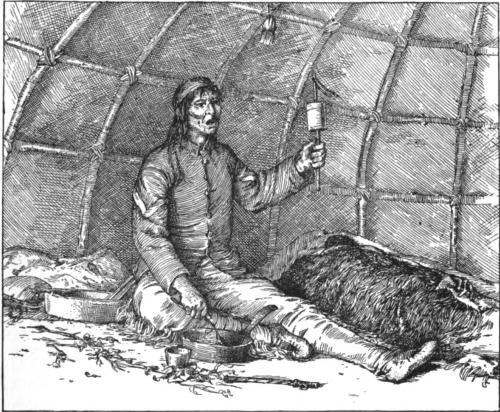|
List Of Nipissing Ethnonyms
{{main, Nipissing First Nation This is a list of various names the Nipissing First Nation, Nipissing have been recorded. Endonyms Anishinaabe(g) The most general name for the Nipissing is ''Anishinaabe''. Though several definitions are given for this name, the most common one is "spontaneous men", referring to their creation as being ''ex nihlo'', thus being the "Original men." When syncoped, the name appears as "Nishnaabe". Nibiinsing The general term for the Nipissing peoples arise from the Anishinaabe word ''Nibii(n)sing'', meaning "at the little water". When the name is syncoped, it can appear as either ''Nbii(n)sing'', ''Mbii(n)sing'' or ''Bii(n)sing''. * Neperinks. — Clinton (1745) in ''New York Documents of Colonial History'', VI, 276, 1855. * Nepesangs. — Pike, ''Expedition'', pt. 1, appendix, 62, 1810. * Nepesinks. — Clinton (1745) in ''New York Documents of Colonial History'', VI, 281, 1855. * Nepessins. — Buchanan, ''North American Indians'', I, 139, 1824. * N ... [...More Info...] [...Related Items...] OR: [Wikipedia] [Google] [Baidu] |
Nipissing First Nation
Nipissing First Nation ( oj, Niipsing, meaning place of the elms) is a long-standing community of Nishnaabeg peoples located along the shorelines of Lake Nipissing in northern Ontario. They are referred to by many names in European historical records, since the colonists often adopted names given to them by other nations. The Nipissing are part of the Anishinaabe peoples, a grouping of people speaking Algonquin languages, which includes the Odawa, Ojibwe, Potawatomi, and Algonquins. This broad heritage is likely the result of the Nipissings' living at a geographical crossroads, a watershed divide. Geography Lake Nipissing drains via the French River into Georgian Bay and, to the east of Lake Nipissing, Trout Lake drains via the Mattawa River into the Ottawa River. Living at the crossroads between two watersheds, the Nipissing were key to trade to the east, west, north and south of Lake Nipissing. The French portaged the watershed divide extensively to reach the Great La ... [...More Info...] [...Related Items...] OR: [Wikipedia] [Google] [Baidu] |
Anishinaabe
The Anishinaabeg (adjectival: Anishinaabe) are a group of culturally related Indigenous peoples present in the Great Lakes region of Canada and the United States. They include the Ojibwe (including Saulteaux and Oji-Cree), Odawa, Potawatomi, Mississaugas, Nipissing and Algonquin peoples. The Anishinaabe speak ''Anishinaabemowin'', or Anishinaabe languages that belong to the Algonquian language family. At the time of first contact with Europeans they lived in the Northeast Woodlands and Subarctic, and some have since spread to the Great Plains. The word Anishinaabe translates to "people from whence lowered". Another definition refers to "the good humans", meaning those who are on the right road or path given to them by the Creator Gitche Manitou, or Great Spirit. Basil Johnston, an Ojibwe historian, linguist, and author wrote that the term's literal translation is "Beings Made Out of Nothing" or "Spontaneous Beings". The Anishinaabe believe that their people were created ... [...More Info...] [...Related Items...] OR: [Wikipedia] [Google] [Baidu] |
Ojibwa
The Ojibwe, Ojibwa, Chippewa, or Saulteaux are an Anishinaabe people in what is currently southern Canada, the northern Midwestern United States, and Northern Plains. According to the U.S. census, in the United States Ojibwe people are one of the largest tribal populations among Native American peoples. In Canada, they are the second-largest First Nations population, surpassed only by the Cree. They are one of the most numerous Indigenous Peoples north of the Rio Grande. The Ojibwe population is approximately 320,000 people, with 170,742 living in the United States , and approximately 160,000 living in Canada. In the United States, there are 77,940 mainline Ojibwe; 76,760 Saulteaux; and 8,770 Mississauga, organized in 125 bands. In Canada, they live from western Quebec to eastern British Columbia. The Ojibwe language is Anishinaabemowin, a branch of the Algonquian language family. They are part of the Council of Three Fires (which also include the Odawa and Potawatomi) and ... [...More Info...] [...Related Items...] OR: [Wikipedia] [Google] [Baidu] |
Odaawaa
The Odawa (also Ottawa or Odaawaa ), said to mean "traders", are an Indigenous American ethnic group who primarily inhabit land in the Eastern Woodlands region, commonly known as the northeastern United States and southeastern Canada. They have long had territory that crosses the current border between the two countries, and they are federally recognized as Native American tribes in the United States and have numerous recognized First Nations bands in Canada. They are one of the Anishinaabeg, related to but distinct from the Ojibwe and Potawatomi peoples. After migrating from the East Coast in ancient times, they settled on Manitoulin Island, near the northern shores of Lake Huron, and the Bruce Peninsula in the present-day province of Ontario, Canada. They considered this their original homeland. After the 17th century, they also settled along the Ottawa River, and in the present-day states of Michigan and Wisconsin, as well as through the Midwest south of the Great Lakes i ... [...More Info...] [...Related Items...] OR: [Wikipedia] [Google] [Baidu] |
Algonquin Language
Algonquin (also spelled Algonkin; in Algonquin: or ) is either a distinct Algonquian language closely related to the Ojibwe language or a particularly divergent Ojibwe dialect. It is spoken, alongside French and to some extent English, by the Algonquin First Nations of Quebec and Ontario. As of 2006, there were 2,680 Algonquin speakers,. less than 10% of whom were monolingual. Algonquin is the language for which the entire Algonquian language subgroup is named; the similarity among the names often causes considerable confusion. Like many Native American languages, it is strongly verb-based, with most meaning being incorporated into verbs instead of using separate words for prepositions, tense, etc. Classification Omàmìwininìmowin (Algonquin) is an Algonquian language, of the Algic family of languages, and is descended from Proto-Algonquian. It is considered a particularly divergent dialect of Ojibwe by many. But, although the speakers call themselves '' Omàmìwinin� ... [...More Info...] [...Related Items...] OR: [Wikipedia] [Google] [Baidu] |
Michel Maray De La Chauvignerie
Michel Maray de La Chauvignerie (January 24, 1704August 10, 1778), also known as Michel Maray, sieur de la La Chauvignerie, was a French military officer in the Troupes de la Marine and interpreter of Iroquoian languages. Biography Michel Maray de La Chauvignerie was born on January 24, 1704 in Montreal, New France to Sieur Louis Maray de la Chauvignerie, an officer in the Troupes de la Marine, and Catherine Joly. He was baptized in Montreal, New France on September 5, 1704. Together with Louis-Thomas Chabert de Joncaire, La Chauvignerie convinced several Native American tribes to renew their alliance with New France at a banquet in Montreal by singing an Iroquois war song when New France was threatened by an attack from the British in August 1711. In 1736, La Chauvignerie published a list of names from the Ojibwe and other peoples that he had compiled. In June 1755, Lieutenant La Chauvignerie replaced Philippe-Thomas Chabert de Joncaire as the officer in charge of constructi ... [...More Info...] [...Related Items...] OR: [Wikipedia] [Google] [Baidu] |
Algonquin People
The Algonquin people are an Indigenous people who now live in Eastern Canada. They speak the Algonquin language, which is part of the Algonquian language family. Culturally and linguistically, they are closely related to the Odawa, Potawatomi, Ojibwe (including Oji-Cree), Mississauga and Nipissing, with whom they form the larger Anicinàpe (Anishinaabeg). Algonquins call themselves Omàmiwinini (plural: Omàmiwininiwak) or the more generalised name of Anicinàpe. Though known by several names in the past, such as ''Algoumequin'', the most common term "Algonquin" has been suggested to derive from the Maliseet word (): "they are our relatives/allies." The much larger heterogeneous group of Algonquian-speaking peoples, who, according to Brian Conwell, stretch from Virginia to the Rocky Mountains and north to Hudson Bay, was named after the tribe. Most Algonquins live in Quebec. The nine recognized status Algonquin bands in that province and one in Ontario have a combined ... [...More Info...] [...Related Items...] OR: [Wikipedia] [Google] [Baidu] |
Fox (tribe)
The Meskwaki (sometimes spelled Mesquaki), also known by the European exonyms Fox Indians or the Fox, are a Native American people. They have been closely linked to the Sauk people of the same language family. In the Meskwaki language, the Meskwaki call themselves ', which means "the Red-Earths", related to their creation story. Historically their homelands were in the Great Lakes region. The tribe coalesced in the St. Lawrence River Valley in present-day Ontario, Canada. Under French colonial pressures, it migrated to the southern side of the Great Lakes to territory that much later was organized by European Americans as the states of Michigan, Wisconsin, Illinois, and Iowa. The Meskwaki suffered damaging wars with the French and their Native American allies in the early 18th century, with one in 1730 decimating the tribe. Euro-American colonization and settlement proceeded in the United States during the 19th century and forced the Meskwaki/Fox south and west into the t ... [...More Info...] [...Related Items...] OR: [Wikipedia] [Google] [Baidu] |
Midewiwin
The Midewiwin (in syllabics: , also spelled ''Midewin'' and ''Medewiwin'') or the Grand Medicine Society is a secretive religion of some of the indigenous peoples of the Maritimes, New England and Great Lakes regions in North America. Its practitioners are called ''Midew'', and the practices of ''Midewiwin'' are referred to as ''Mide''. Occasionally, male ''Midew'' are called ''Midewinini'', which is sometimes translated into English as "medicine man". Etymology The preverb ''mide'' can be translated as "mystery," "mysterious," "spiritual," "sanctified," "sacred," or "ceremonial", depending on the context of its use. The derived verb ''midewi'', thus means "be in/of ''mide''." The derived noun ''midewiwin'' then means "state of being in ''midewi''." Often ''mide'' is translated into English as "medicine" (thus the term ''midewinini'' "medicine-man") though ''mide'' conveys the idea of a spiritual medicine, opposed to ''mashkiki'' that conveys the idea of a physical medicine. ... [...More Info...] [...Related Items...] OR: [Wikipedia] [Google] [Baidu] |
Algonquin Ethnonyms
This is a list of various names the Algonquins have been recorded. Endonyms Anishinaabe(g) The most general name for the Algonquins is ''Anishinaabe''. Though several definitions are given for this name, the most common one is "spontaneous men", referring to their creation as being ''ex nihlo'', thus being the "Original men." When syncoped, the name appears as "Nishnaabe". * Anicinàpe(k). — Algonquin roman orthography. * Anishinaabe(g). — Fiero "double vowel" roman orthography. Odishkwaagamii(g) Among the Anishinaabe peoples, the Nipissings and the Algonquins are collectively called ''Odishkwaagamii(g)'' (syncoped as ''Dishkwaagmii(g)''), meaning " hoseat the end of the lakewater," but Jean Cuoq translates the name as " hoseat the last water," from ''ishkwaa'' ("end") and ''gami'' ("lakewater"). Chamberlain prefers " eopleon the otherside of the lake" though Chamberlin's translation would be for the ''Odagaamii(g)'' — the Fox. Among the Nipissings, though, they call thems ... [...More Info...] [...Related Items...] OR: [Wikipedia] [Google] [Baidu] |
Ojibwa Ethnonyms
This is a list of various names the Ojibwa have been recorded. They can be divided based on who coined the names. The first type are names created by the Ojibwa people to refer to themselves, known as endonyms or autonyms. The second type are names coined by non-Ojibwa people and are known as exonyms or xenonyms. Endonyms Anishinaabe(g) The most general name for the Ojibwa is ''Anishinaabe''. Though several definitions are given for this name, the most common one is "spontaneous men", referring to their creation as being ''ex nihilo'', thus being the "Original men." When syncoped, the name appears as "Nishnaabe": * An-ish-in-aub-ag. — Warren in Minnesota Historical Society Collections, V, 45, 1885. * A-wish-in-aub-ay. — Warren in Minnesota Historical Society Collections, V, 37, 1885. In more recent spelling includes: * Ahnishinahbæótjibway (used by Wub-e-ke-niew (''Waabiginiw'')/Francis Blake, Jr. for ''Anishinaabe-Ojibwe'') * Anishinabek (as in: Anishinabek Nation) * Anis ... [...More Info...] [...Related Items...] OR: [Wikipedia] [Google] [Baidu] |
Potawatomi Ethnonyms
{{main, Potawatomi This is a list of various names the Potawatomi have been recorded. Endonyms Neshnabé Neshnabé (without syncope: Eneshenabé), a cognate of Ojibwe ''Anishinaabe'', meaning "Original People." The plural is Neshnabék. Bodéwadmi Bodéwadmi (without syncope: Bodéwademi), a cognate of Ojibwe "''Boodewaadamii''". It means "those who keep/tend the hearth-fire", which in this case refers to the hearth of the Council of Three Fires. The word itself comes from "to keep/tend the hearth-fire", which is "''bodewadm''" (without syncope: "''bodewadem''"; Ojibwe "''boodawaadam''"). The plural is Bodéwadmik. * Oupouteouatamik – Jesuit Relations: 1658, 21, 1858. * Patawatimes – Treaty of Greenville (1795) quoted by Harris, Tour, 249, 1805. * Patawattamies – Turkey Creek treaty (1836) in U. S. Ind. Treaties, 648,1837. * Patawattomies – Hunter, Captivity, 14, 1823. * Pattawatamies – Hamtramck (1790) in Am. St. Papers, Ind. Aff., I, 87, 1832.http://memory.loc. ... [...More Info...] [...Related Items...] OR: [Wikipedia] [Google] [Baidu] |

.jpg)


